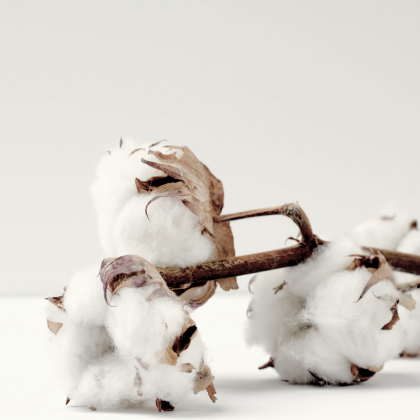
Cotton
Underworks is proud that it currently sources 100% of its cotton from sustainable cotton sources. In 2021, in under a year, we managed to transition away from conventional cotton altogether and assured that all our cotton was Better Cotton and or certified organic Cotton and thus a more preferred sustainable cotton, according to the Preferred Fibre and Materials Market Report. Both these types of cotton use less water, energy and chemicals than conventional cotton. Underworks is a pioneer in this area, as the global average for companies sourcing sustainable cotton in 2021 was only 25%.





